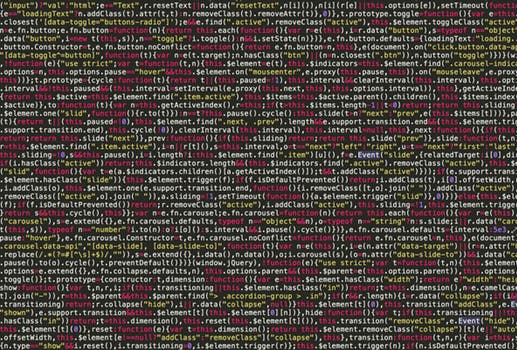TheDeveloperBlog.com
C-Sharp | Java | Python | Swift | GO | WPF | Ruby | Scala | F# | JavaScript | SQL | PHP | Angular | HTML
Java Console Examples
Use the System.out println and print methods. Read console input with System.in.Here: The first line is printed. The characters "A" and "B" are printed on the same line. And on the final line "C" is printed.
Java program that uses println, print
public class Program {
public static void main(String[] args) {
System.out.println("Print line");
System.out.print("A");
System.out.print("B");
System.out.println();
System.out.println("C");
}
}
Output
Print line
AB
C
Java program that prints char array
public class Program {
public static void main(String[] args) {
char[] array = new char[3];
array[0] = 'a';
array[1] = 'b';
array[2] = 'c';
// Print a char array.
System.out.println(array);
}
}
Output
abc
Java program that prints ints
public class Program {
public static void main(String[] args) {
// Print ints directly, no conversion needed.
int value = 10;
System.out.println(value);
System.out.println(value * 10);
}
}
Output
10
100
Subsequence: We can append a range (subsequence) with the append method. We pass the first and last indexes of the string.
Java program that uses append, System.out
public class Program {
public static void main(String[] args) {
// Append strings to output stream.
System.out.append("cat");
System.out.append("\n");
// Append range of CharSequence.
System.out.append("java program", 5, 5 + 7);
}
}
Output
cat
program
InputStreamReader: This class can be initialized from an InputStream (such as System.in).
BufferedReader: This class provides utility methods for reading from a stream. It is also used on files.
BufferedReaderJava program that reads line from console
import java.io.BufferedReader;
import java.io.IOException;
import java.io.InputStreamReader;
public class Program {
public static void main(String[] args) throws IOException {
// Get BufferedReader for System.in.
BufferedReader in = new BufferedReader(
new InputStreamReader(System.in));
// Read line from console.
String line = in.readLine();
System.out.println("You typed " + line);
}
}
Output
something
You typed something
Switch: The program uses a switch statement to handle the user-input. The "break" statements apply to the switch statement, not the loop.
SwitchResults: When I type "cat" the default case is reached. With the lines "1" and "2" the cases labeled 1 and 2 are entered.
Java program that reads input interactively
import java.io.BufferedReader;
import java.io.IOException;
import java.io.InputStreamReader;
public class Program {
public static void main(String[] args) throws IOException {
// Read input with BufferedReader.
BufferedReader in = new BufferedReader(
new InputStreamReader(System.in));
while (true) {
// Read line and try to call parseInt on it.
String line = in.readLine();
int result;
try {
result = Integer.parseInt(line);
} catch (NumberFormatException exception) {
result = 0;
}
// Handle user input in a switch case.
switch (result) {
default:
System.out.println("Default");
break;
case 1:
System.out.println("One");
break;
case 2:
System.out.println("Two");
break;
}
}
}
}
Output
cat
Default
2
Two
1
One
Default
Related Links:
- Java Continue Keyword
- Java Convert Char Array to String
- Java Combine Arrays
- Java Console Examples
- Java Web Services Tutorial
- Java Odd and Even Numbers: Modulo Division
- Java IO
- Java 9 Features
- Java 8 Features
- Java String
- Java Regex | Regular Expression
- Java Filename With Date Example (Format String)
- Java Applet Tutorial
- Java Files.Copy: Copy File
- Java filter Example: findFirst, IntStream
- Java Final and final static Constants
- Java Super: Parent Class
- Java Date and Time
- Java do while loop
- Java Break
- Java Continue
- Java Comments
- Java Splitter Examples: split, splitToList
- Java Math.sqrt Method: java.lang.Math.sqrt
- Java Reflection
- Java Convert String to int
- JDBC Tutorial | What is Java Database Connectivity(JDBC)
- Java main() method
- Java HashMap Examples
- Java HashSet Examples
- Java Arrays.binarySearch
- Java Integer.bitCount and toBinaryString
- Java Overload Method Example
- Java First Words in String
- Java Convert ArrayList to String
- Java Convert boolean to int (Ternary Method)
- Java regionMatches Example and Performance
- Java ArrayDeque Examples
- Java ArrayList add and addAll (Insert Elements)
- Java ArrayList Clear
- Java ArrayList int, Integer Example
- Java ArrayList Examples
- Java Boolean Examples
- Java break Statement
- Java Newline Examples: System.lineSeparator
- Java Stream: Arrays.stream and ArrayList stream
- Java charAt Examples (String For Loop)
- Java Programs | Java Programming Examples
- Java OOPs Concepts
- Java Naming Conventions
- Java Constructor
- Java Class Example
- Java indexOf Examples
- Java Collections.addAll: Add Array to ArrayList
- Java Compound Interest
- Java Int Array
- Java Interface Examples
- Java 2D Array Examples
- Java Remove HTML Tags
- Java Stack Examples: java.util.Stack
- Java Enum Examples
- Java EnumMap Examples
- Java StackOverflowError
- Java startsWith and endsWith Methods
- Java Initialize ArrayList
- Java Object Array Examples: For, Cast and getClass
- Java Objects, Objects.requireNonNull Example
- Java Optional Examples
- Java Static Initializer
- Java static Keyword
- Java Package: Import Keyword Example
- Java Do While Loop Examples
- Java Double Numbers: Double.BYTES and Double.SIZE
- Java Truncate Number: Cast Double to Int
- Java Padding: Pad Left and Right of Strings
- Java Anagram Example: HashMap and ArrayList
- Java Math.abs: Absolute Value
- Java Extends: Class Inheritance
- Java String Class
- Java String Switch Example: Switch Versus HashMap
- Java StringBuffer: append, Performance
- Java Array Examples
- Java Remove Duplicates From ArrayList
- Java if, else if, else Statements
- Java Math.ceil Method
- Java This Keyword
- Java PriorityQueue Example (add, peek and poll)
- Java Process.start EXE: ProcessBuilder Examples
- Java Palindrome Method
- Java parseInt: Convert String to Int
- Java toCharArray: Convert String to Array
- Java Caesar Cipher
- Java Array Length: Get Size of Array
- Java String Array Examples
- Java String compareTo, compareToIgnoreCase
- Java String Concat: Append and Combine Strings
- Java Cast and Convert Types
- Java Math.floor Method, floorDiv and floorMod
- Java Math Class: java.lang.Math
- Java While Loop Examples
- Java Reverse String
- Java Download Web Pages: URL and openStream
- Java Math.pow Method
- Java Math.round Method
- Java Right String Part
- Java MongoDB Example
- Java Substring Examples, subSequence
- Java Prime Number Method
- Java Sum Methods: IntStream and reduce
- Java switch Examples
- Java Convert HashMap to ArrayList
- Java Remove Duplicate Chars
- Java Constructor: Overloaded, Default, This Constructors
- Java String isEmpty Method (Null, Empty Strings)
- Java Regex Examples (Pattern.matches)
- Java ROT13 Method
- Java Random Number Examples
- Java Recursion Example: Count Change
- Java reflect: getDeclaredMethod, invoke
- Java Count Letter Frequencies
- Java ImmutableList Examples
- Java String equals, equalsIgnoreCase and contentEquals
- Java valueOf and copyValueOf String Examples
- Java Vector Examples
- Java Word Count Methods: Split and For Loop
- Java Tutorial | Learn Java Programming
- Java toLowerCase, toUpperCase Examples
- Java Ternary Operator
- Java Tree: HashMap and Strings Example
- Java TreeMap Examples
- Java while loop
- Java Convert String to Byte Array
- Java Join Strings: String.join Method
- Java Modulo Operator Examples
- Java Integer.MAX VALUE, MIN and SIZE
- Java Lambda Expressions
- Java lastIndexOf Examples
- Java Multiple Return Values
- Java String.format Examples: Numbers and Strings
- Java Joiner Examples: join
- Java Keywords
- Java Replace Strings: replaceFirst and replaceAll
- Java return Examples
- Java Multithreading Interview Questions (2021)
- Java Collections Interview Questions (2021)
- Java Shuffle Arrays (Fisher Yates)
- Top 30 Java Design Patterns Interview Questions (2021)
- Java ListMultimap Examples
- Java String Occurrence Method: While Loop Method
- Java StringBuilder capacity
- Java Math.max and Math.min
- Java Factory Design Pattern
- Java StringBuilder Examples
- Java Mail Tutorial
- Java Swing Tutorial
- Java AWT Tutorial
- Java Fibonacci Sequence Examples
- Java StringTokenizer Example
- Java Method Examples: Instance and Static
- Java String Between, Before, After
- Java BitSet Examples
- Java System.gc, Runtime.getRuntime and freeMemory
- Java Character Examples
- Java Char Lookup Table
- Java BufferedWriter Examples: Write Strings to Text File
- Java Abstract Class
- Java Hashtable
- Java Math class with Methods
- Java Whitespace Methods
- Java Data Types
- Java Trim String Examples (Trim Start, End)
- Java Exceptions: try, catch and finally
- Java vs C#
- Java Float Numbers
- Java Truncate String
- Java Variables
- Java For Loop Examples
- Java Uppercase First Letter
- Java Inner Class
- Java Networking
- Java Keywords
- Java If else
- Java Switch
- Loops in Java | Java For Loop
- Java File: BufferedReader and FileReader
- Java Random Lowercase Letter
- Java Calendar Examples: Date and DateFormat
- Java Case Keyword
- Java Char Array
- Java ASCII Table
- Java IntStream.Range Example (Get Range of Numbers)
- Java length Example: Get Character Count
- Java Line Count for File
- Java Sort Examples: Arrays.sort, Comparable
- Java LinkedHashMap Example
- Java Split Examples